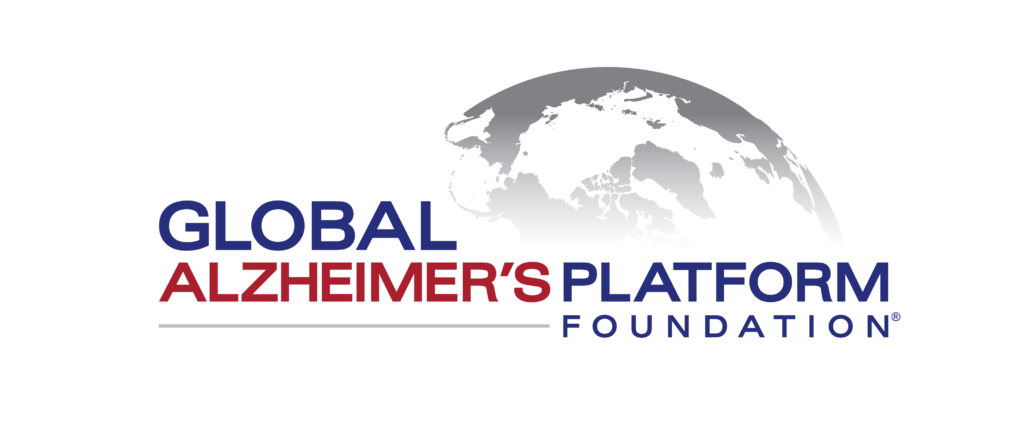CMS FAILS TO FAIRLY EVALUATE ALZHEIMER’S TREATMENTS
Washington, D.C. (March 23, 2022) — Adding to the growing number of advocates calling on the U.S. Centers for Medicare and Medicaid Services (CMS) to reconsider an unprecedented National Coverage Determination (NCD) that discriminates against 6 million people with Alzheimer’s disease, U.S. Senators Mark R. Warner (D-VA) and Ed Markey (D-MA), co-chairs of the Congressional Task Force on Alzheimer’s Disease, along with Senators Chris Van Hollen (D-MD) and Debbie Stabenow (D-MI), urged CMS Administrator Chiquita Brooks-LaSure to consider the harmful impact CMS’s draft NCD will have on current and future Alzheimer’s treatments, and communities of color. Read their release here.
Responding to the senators’ advocacy on behalf of their constituents, John Dwyer, President of the Global Alzheimer’s Platform Foundation® (GAP), said, “Unlike the scripted talking points that CMS is using to defend its misguided NCD, we are heartened that Senators Warner and Markey and their colleagues see the NCD for what it is — an over-reaching and discriminatory rule that will set Alzheimer’s treatment and research at least ten years behind and will harm current and future generations, with the greatest impact falling on Black, Hispanic and rural Americans.”
While the senators acknowledged the controversy over the FDA approval of the first Alzheimer’s treatment in 20 years, aducanumab (Aduhelm®), the senators expressed concern that CMS was not denying coverage to just one treatment but an entire class of them “before final data on safety and efficacy are even released on other therapies in the pipeline.”
In their letter to Administrator Brooks-LaSure, the senators wrote: “No two drugs work exactly the same for all individuals. Further, the evidence gathered from Aduhelm’s FDA confirmatory trial as well as additional evidence gathered by CMS may inform coverage decisions of potential future drugs. Each new medicine, in our view, should be reviewed on its own merits and not as a class.”
Adding insult to injury, CMS’ draft rule makes it harder for rural Americans and communities of color to participate in clinical trials, where access to novel, life-improving treatments can mean the difference between slowed or hastened progression of the disease.
Echoing the senators’ concerns that the draft “NCD’s requirement for randomized controlled trials could also limit inclusion of people of color,” Dwyer said that CMS has dealt a blow to the enormous progress the Alzheimer’s community has made toward diversity in representation and enrollment in this area in recent years.
“While I’d like to give CMS the benefit of the doubt in their desire to increase diversity in Alzheimer’s clinical trials, the facts don’t support it,” Dwyer said.
“If CMS’s draft NCD is not reversed, people like those living in Starr County, Texas — near the Texas-Mexico border, in an area that is 97 percent Hispanic — can say goodbye to any hope for trials or new treatments,” Dwyer said. “Here and in other communities, Black and Hispanic participation in clinical trials exceeds the CMS bar. But those trials are occurring in the communities where they live — not in urban, tertiary research centers frequently accessible only to the wealthy. If CMS continues to prioritize cost over lives, those same people will be left behind.”
As the senators noted: “Alzheimer’s patients and their families have been waiting 20 years since the last therapy was approved, and this class of therapies holds the promise that those living with the disease may soon have multiple disease-modifying therapies from which to choose. Time is not on the side of those with Alzheimer’s, and we urge you to issue a final NCD that puts patients and their loved ones first by examining each potential new treatment on its own.”
###
About the Global Alzheimer’s Platform Foundation® (GAP)
The Global Alzheimer’s Platform Foundation® (GAP) is a person-centric nonprofit dedicated to?accelerating?the delivery of innovative therapies for neurological disorders by reducing the?duration?and cost of clinical trials. Research centers?across the US, Canada, and Europe?are part of the growing GAP Network (GAP-Net). GAP supports?GAP-Net research centers by assisting with?study start up and recruitment activities,?promoting?diversity in research studies, and?offering?international clinical trial infrastructure, resources, and programs that champion brain health and the citizen scientists who make research possible.
